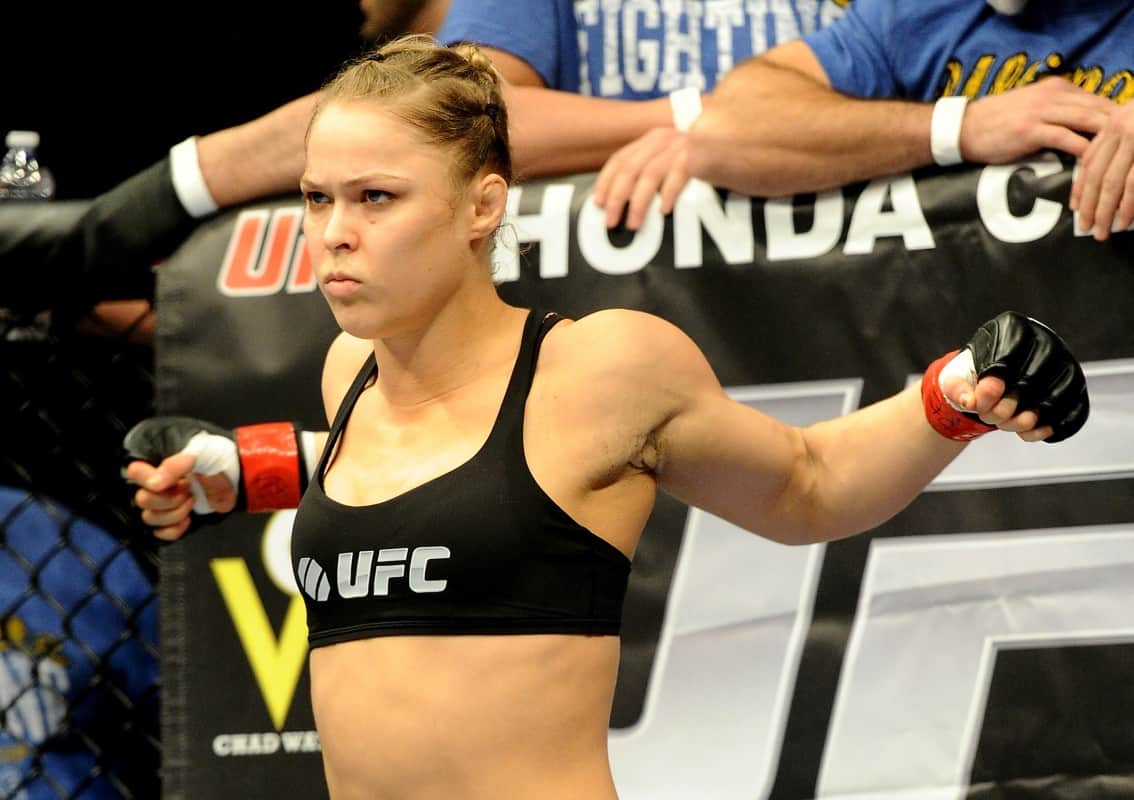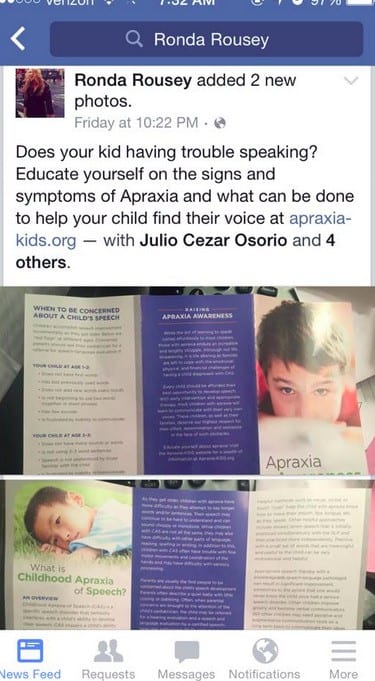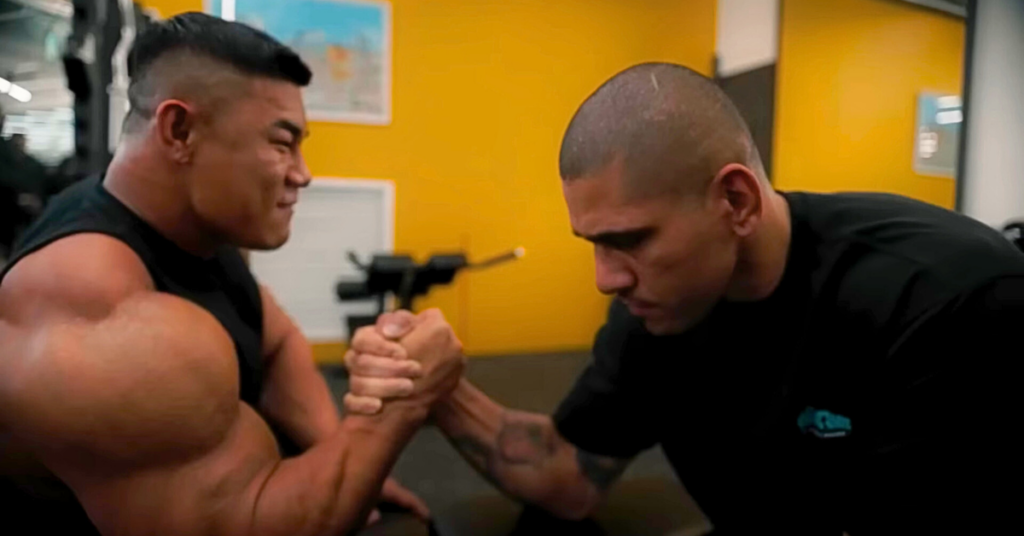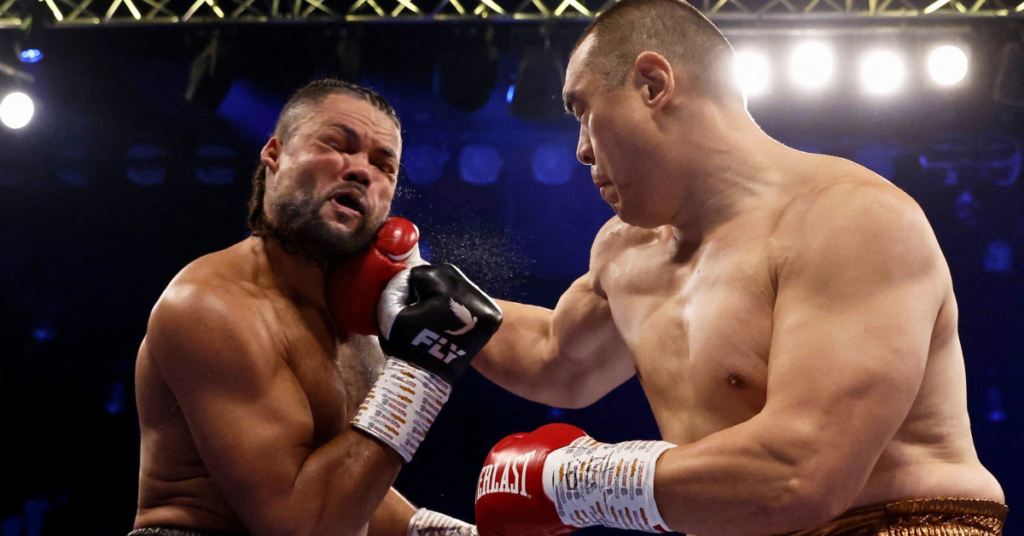Touching Story Of The Day: Ronda Rousey’s Childhood Apraxia Helps Mother & Daughter

I found out something both interesting and educational today; Ronda Rousey had apraxia as a child, doctors thought she may have been brain damaged from having her umbilical cord wrapped around her neck and birth damaging her vocal cords and causing her to mumble incoherently until the age of six. This story has only come to light through a touching spread over at TheMighty.com:
“In her first six years, nobody knew whether she’d ever speak an intelligent sentence, such were the after effects of being born with an umbilical cord wrapped around her neck. It could be that her gibberish and mumblings were signs of brain damage. No one knew, and her parents — Ron, an aerospace-industry executive, and De Mars, an educational psychologist and statistician — moved when she was three from Riverside, California, to Jamestown, North Dakota, in part to be near the Minot State University speech therapists, who set about bringing her vocal cords to their senses. It wasn’t easy, and it took time. And it was especially frustrating for Ronda given how advanced her sisters were. ‘I’m dumb, Mom,’ she once said. ‘Maria and Jennifer have the words. I don’t have the words.’ ‘No, you’re not, you’re very smart,’ her mother told her.”
The author of the article, Laura Smith, is a mother of two children, the eldest of whom has global Apraxia. She recounts the day she attended the signing of Rousey’s autobiography My Fight/Your Fight, and when she finally made the link between her daughter’s and Ronda Rousey‘s condition:
“Did you have apraxia?” Laura asked ‘Rowdy’
Ronda stopped signing, looked me in the eye and said, “What did you just say?”
“Uh, uh, apraxia? Dyspraxia? Was that your speech impediment?”
She looked incredulous and repeated, “Apraxia, yes, this is what they think I had.”
I smiled. I knew it. Un-freaking believable. I looked over at the bodyguards. What the heck. I threw the CASANA brochure on the counter. They moved in, but she motioned them to stop.
I said, “This is information on apraxia. If you really did have it, will you say that in your interviews instead of speech impediment? It would mean so much to our kids who are struggling with it.”
She again looked at the brochure before looking back up at me and said, “I will. I really will.”
She seemed sincere. I instantly believed she would. I had Ashlynn give her a hug and tried to push her along (bodyguards were watching), and she said, “You know, my mom is a PhD psychologist, and she had never heard of it. She took me to the universities and many of them had never heard of it.”
Rousey went on to the social media assault and instantly posted support for children with Apraxia:
A great ending to what was clearly an emotional journey for the author, and it’s good to see some positive news for a change. Rousey clearly has a heart of old, and was touched by this young girl’s fight.
When she isn’t demolishing top-tier contenders in under a minute, UFC women’s bantamweight champion Ronda Rousey is a class act.
We’ll round of this article with the final segment of Laura’s recap of the day she met with the champ:
Even if she doesn’t do anything else, even if she doesn’t say she has apraxia, Ashlynn and I will always have that moment — that moment when we met a true fighter who overcame apraxia and so much more, just like I believe Ashlynn will.
We will always have that book confirming what I have hoped all along:
“I never would have been able to do any of those things without hope. The kind of hope I’m talking about is the belief that something good will come. That everything you’re going through and everything you’ve gone through will be worth the struggles and frustrations. The kind of hope I’m talking about is a deep belief that the world can be changed, that the impossible is possible.” – Ronda Rousey







